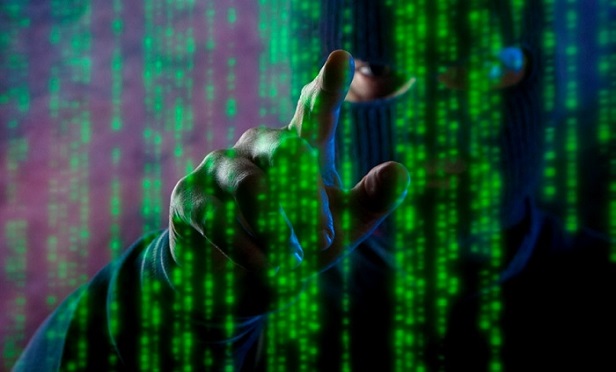 Three-quarters (75%) of the respondentsto Accenture's new report, "Securing the Digital Economy:Reinventing the Internet for Trust," said that they believe thataddressing cybersecurity challenges will requirecross-industry coordination. (iStock/ALM Media archives)
Three-quarters (75%) of the respondentsto Accenture's new report, "Securing the Digital Economy:Reinventing the Internet for Trust," said that they believe thataddressing cybersecurity challenges will requirecross-industry coordination. (iStock/ALM Media archives)
Companies globally could incur $5.2 trillion in additional costsand lost revenue over the next five years due to cyberattacks, asdependency on complex internet-enabled business models outpaces theability to introduce adequate safeguards that protect criticalassets, according to a new report from Accenture, theglobal professional services company.
|Based on a survey of more than 1,700 chief executive officersand other C-suite executives worldwide, the report titled"Securing the Digital Economy: Reinventing the Internet for Trust"explores the complexities of the internet-related challenges facingbusiness and outlines imperatives for the chief executive officer'sevolving role in technology, business architecture andgovernance.
|The report notes that cybercrime poses significant challenges thatcan threaten business operations, innovation and growth, as well asthe expansion into new products and services, ultimately costingcompanies trillions of dollars.
|The high-tech industry faces the highest risk, with more than$753 billion hanging in the balance, followed by the life sciencesand automotive industries, with $642 billion and$505 billion at risk, respectively, according to theAccenture report.
|"Internet security is lagging behind thesophistication of cybercriminals and is leading to an erosion oftrust in the digital economy," said Omar Abbosh, who leadsAccenture's communications, media, and technology operating groupglobally. "Strengthening internet security requires decisive — and,at times, unconventional — leadership by CEOs, not just CISOs. Tobecome a cyber-resilient enterprise, companies need to start bybringing CISOs' expertise to the board, ensuring security isbuilt-in from the initial design stage and that all businessmanagers are held responsible for security and data privacy."
|Key findings
Among the takeaways from the Accenture report:
- Four in five respondents (79%) said they believed that theadvancement of the digital economy will be severely hinderedunless there is dramatic improvement in internet security;
- More than half (59%) of respondents said the internet isgetting increasingly unstable from a cybersecurity standpoint, and they are unsurehow to respond;
- Three-quarters (75%) of respondents said that they believedthat addressing cybersecurity challenges will require anorganized group effort, as no single organization can solve thechallenge on its own; and
- More than half (56%) of executives said that they would welcomestricter business regulations imposed by a central organization orgoverning body.
"The internet wasn't built with today's level of complexity andconnectivity in mind, which is why it takes just one click —whether inside or outside the company walls — to fall prey to a devastating cyberattack,"said Kelly Bissell, senior managing director of AccentureSecurity. "No organization can tackle the challenges posed by cyberthreats on its own; it's a global challenge that needs a globalresponse, and collaboration is key. To shape a future that thriveson a strong and trustworthy digital economy, senior executives needto look beyond the bounds of their organization, team with anecosystem of partners, and secure their entire value chains— across every partner, supplier, and customer."
|The rapid emergence of new technologies is creating additionalchallenges, as four in five respondents (79 %) said that theirorganization is adopting new and emerging technologies faster thanthey can address related cybersecurity issues, with three-quarters(76 %) noting that cybersecurity issues have escaped their controldue to new technologies such as the internet of things (IoT) andthe industrial internet of things (IIoT). A majority (80 %) alsosaid protecting their companies from weaknesses in third parties isincreasingly difficult, which was not surprising given thecomplexity of today's sprawling internet ecosystems, Accenturesaid.
|Also on the minds of many senior executives: consumer dataprotection. Fueled by security concerns, 76 % of respondents saidthat they believed that consumers could not trust the safety oftheir online identities when too much of their personal data wasalready available without restrictions.
|This story first published on FC&S Legal,where Victoria Prussen Spears, Esq., is the associatedirector.
|See also: 15 states most at risk from cybercrime in2018
|
Want to continue reading?
Become a Free PropertyCasualty360 Digital Reader
Your access to unlimited PropertyCasualty360 content isn’t changing.
Once you are an ALM digital member, you’ll receive:
- All PropertyCasualty360.com news coverage, best practices, and in-depth analysis.
- Educational webcasts, resources from industry leaders, and informative newsletters.
- Other award-winning websites including BenefitsPRO.com and ThinkAdvisor.com.
Already have an account? Sign In
© 2024 ALM Global, LLC, All Rights Reserved. Request academic re-use from www.copyright.com. All other uses, submit a request to [email protected]. For more information visit Asset & Logo Licensing.








